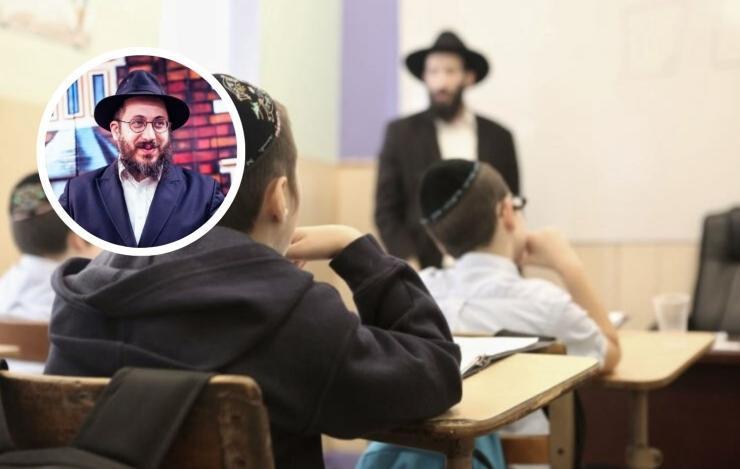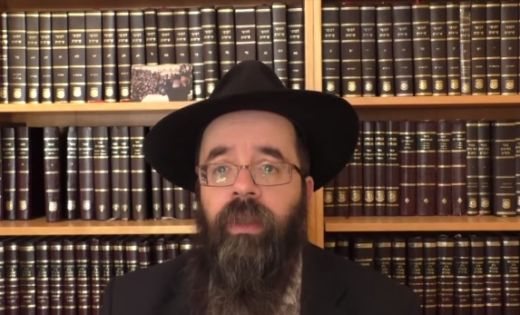The Rebbe’s Advice on Dealing With Loss – Part 2
There was recently a tragic event in our family. My niece, a mother of three young children, lost her husband to a terrible illness. My niece, who is naturally very broken-hearted and depressed now, is still not sure how to explain the death to her young children. Has the Rebbe ever written about this to people? Rabbi Gerhon Avtzon Answers • Full Article
Continued from last week..
Question: There was recently a tragic event in our family. My niece, a mother of three young children, lost her husband to a chronic illness. My niece, who is obviously a little depressed now, is still not sure how to explain the death to her young children. Has the Rebbe ever written about this to people?
Answer: In our previous article, we discussed the Rebbe’s responses to the feelings of the mother and the proper message that should be given over to the children. This week, we will discuss the final question:
What are the best steps for the future of the family?
In 1977, Mrs. Shulamis Shebi – a recently-widowed woman from Ashkelon- wrote a letter to the Rebbe. She included pictures that her recently-deceased husband took in the Sinai desert. The Rebbe wrote hre back a long letter, (right before the Rebbe suffered a heart-attack) and included the following message:
“I will hope that you will treat the following words, even though it would seem that I am mixing into your personal life. Since everything is Hashgacha Pratis, (and we are corresponding), I have the responsibility not to withhold my personal opinion about the following matter:
It is self-understood the great pain in losing a dear husband and a father of the family. Notwithstanding the above, since you were blessed with children, it is your diving and holy mission to ensure that these children live a (relatively) normal life. I mean that you should work on getting remarried.
There is a popular misconception that by remarrying, you are somehow betraying and causing pain to the soul of the departed. It is to the contrary: The soul of the departed is in the world of truth, and sees each thing in its most truthful way. If , because of feelings towards the departed, it prevents a person from doing what is right for the children, it only brings suffering to the soul of the departed – to which I do not want to elaborate. I understand that it is a very difficult decision to make from an emotional perspective, yet Hashem gives each person the necessary strength to make the right decisions.
Another point, in regards to the children: The earlier the decision is made, and thus the younger the children are, the easier it will be for them to accustom themselves to a new person in their lives…. I have seen this situation many times, and this is the Torah way of dealing with this situation and it will be a benefit for the woman and her children.” (Igros volume 30 page 10 #10682).
The Moshiach connection:
When comforting a mourner, we say: “May the Omnipresent comfort you among the rest of the mourners of tzion and Yerushalayimm” What is the connection between the personal mourning of the passing of an individual and the entire Jewish people?
The Rebbe – In a letter to Mr. Ariel Sharon – explains:
“At first glance, the connection between the mourner to whom this blessing is directed and the mourners of Yerushalayim’s destruction appears to be quite puzzling. In truth, however, they are connected. For the main consolation embodied by this phrase is in its inner content, namely: The grief over Zion and Jerusalem is common to all the sons and daughters of our people, Israel, wherever they may be (although it is more palpable to those who dwell in Jerusalem and actually see the Kosel HaMa’aravi and the ruins of our Holy Temple than to those who are far away from it; nonetheless, even those who are far experience great pain and grief over the destruction). So too is the grief of a single individual Jew or Jewish family shared by the entire nation. For, as the sages have taught, all of the Jewish people comprise one integral organism.
Another point and principle, expressing double consolation, is that just as G‑d will most certainly rebuild the ruins of Zion and Jerusalem and gather the dispersed of Israel from the ends of the earth through our righteous Moshiach, so will He, without a doubt, remove the grief of the individual, fulfilling the promise embodied by the verse, “Awaken and sing, you who repose in the dust.” Great will be the joy, the true joy, when all will be rejoined at the time of the resurrection of the dead.
There is yet a third point: In regard to Zion and Jerusalem, the Romans — and before them, the Babylonians — were given dominion only over the wood and stone, silver and gold of the Temple’s physical manifestation, but not over its inner spiritual essence, contained within the heart of each and every Jew—for the nations have no dominion over this, and it stands eternally. So too, regarding the mourning of the individual, death dominates only the physical body and concerns of the deceased person. The soul, however, is eternal; it has merely ascended to the World of Truth. That is why any good deed [performed by the mourner] that accords with the will of the Giver of life, G‑d, blessed be He, adds to the soul’s delight and merit, and to its general good.” (Igros volume 25 page 3 #9380).
138
Join ChabadInfo's News Roundup and alerts for the HOTTEST Chabad news and updates!















































Very good & satisfying.
Todah